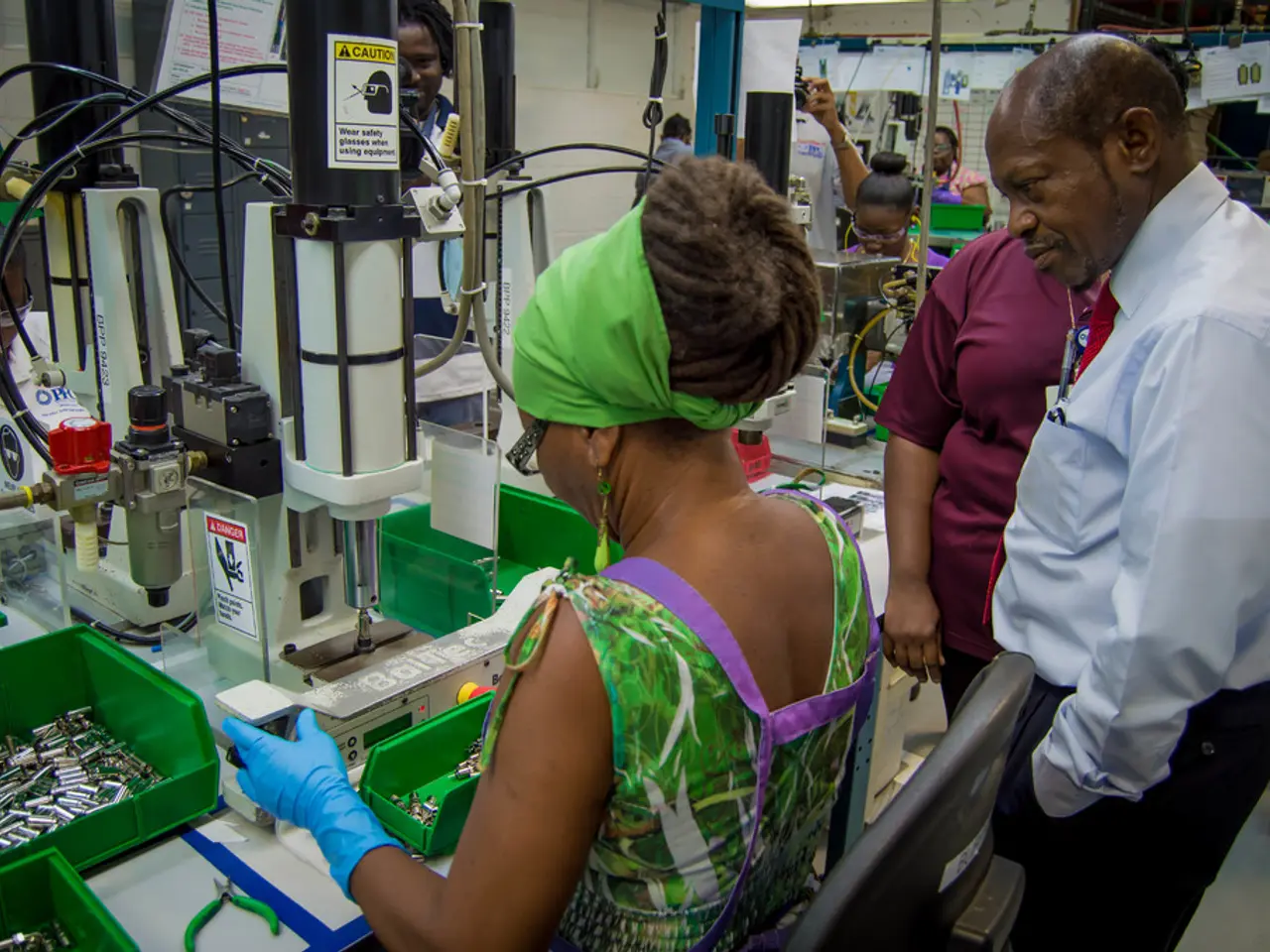Strengthening its dominance in the Spanish rail sector, the company bolsters national economy, contributing €400 million to GDP and sustaining over 7,300 jobs.
In the 2024/2025 financial year, Alstom Spain has made a substantial impact on the country's economy, society, and environment. The French multinational company, known for its rail transport solutions, has shown a commitment to Spain that goes beyond business.
Economic Impact
Alstom Spain's financial success is evident in the €809 million revenue it generated during the period, contributing €400 million to Spain's national GDP [1][2][3]. This significant contribution underscores the company's importance in Spain's economy.
The company's operations also supported over 7,300 jobs, including both direct and indirect employment opportunities [1][3]. Furthermore, Alstom generated 54% of its revenue from exports, highlighting its role in Spain's export-driven economy [1][3].
In addition, the company spent €532 million annually with local suppliers, fostering a resilient industrial ecosystem [3]. This investment not only supports Spanish businesses but also contributes to the country's economic stability.
Social Impact
Alstom's employment structure is diverse, with the company directly employing 2,917 workers and indirectly supporting 4,399 jobs, contributing to social stability and economic growth [3].
By operating across Catalonia, Madrid, and the Basque Country, Alstom contributes to regional economic development and innovation [3]. This regional presence ensures that the benefits of the company's operations are spread across Spain.
Environmental Impact
Alstom's operations in Spain are aligned with its global strategy of decarbonizing mobility, emphasizing sustainable practices and circular economy initiatives [3]. The company's commitment to sustainability is further demonstrated by its ISO 26000 certification, indicating its commitment to socially responsible business practices, which also encompasses environmental sustainability [3].
Moreover, rail is the cleanest and most energy-efficient mode of transport for medium and long distances, according to the European Environment Agency. By focusing on rail transport solutions, Alstom is at the forefront of the transition to low-carbon transport.
In conclusion, Alstom Spain's activities during the 2024/2025 financial year have been pivotal in supporting Spain's economic resilience, fostering social development, and promoting environmental sustainability. The company's future plans, including its target of achieving carbon neutrality by 2050 for its own operations, promise to continue this positive impact.
In the realm of business finance, Alstom Spain's substantial €809 million revenue in the 2024/2025 financial year, along with its €400 million contribution to Spain's national GDP, attests to its significant role in the country's economic supply chain.
In terms of mobility, Alstom Spain's commitment to sustainable practices and its focus on rail transport underscores its role in promoting green and energy-efficient transportation methods, thereby contributing to the country's long-term mobility supply.
Furthermore, Alstom Spain's investment in local suppliers, amounting to €532 million annually, supports the growth and resilience of Spanish businesses, indirectly contributing to the country's economic stability and social development.




